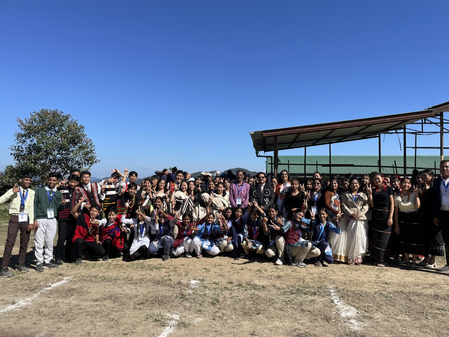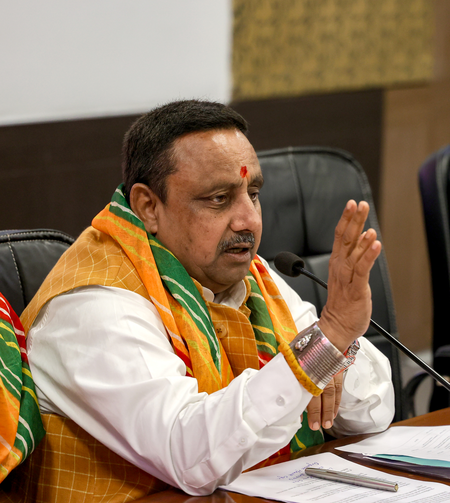
Kohima, Nov 27 (IANS) A delegation from Madhya Pradesh comprising 28 students and seven officials, during their four-day visit to Nagaland, witnessed the Angami Naga community’s pioneering conservation practices, traditional agricultural systems, and remarkable wildlife protection efforts at Khonoma village.
Khonoma village earlier recognised as Asia’s first “Green Village”, where the visiting students learned about the Angami community’s various traditional practices.
A government official in Kohima said that under the “Ek Bharat Shrestha Bharat” (EBSB) programme of Samagra Shiksha, the 35-member delegation from Madhya Pradesh visited Nagaland from November 24 to 27 for an enriching cultural and educational exchange tour aimed at fostering unity, mutual understanding, and national integration.
The delegation was led by Mahesh Jain, Samagra Shiksha Madhya Pradesh Joint Director.
The official said that upon arrival on November 24, officials from Samagra Shiksha Nagaland provided an orientation to the region’s cultural landscape, its educational priorities, and the broader objectives of the EBSB initiative.
This set the tone for an immersive tour designed to give the students first-hand exposure to Nagaland’s heritage, traditions, and academic environment.
The delegation the next day (November 25) visited several key historical and cultural landmarks that highlight Nagaland’s distinct identity.
The team also explored the Nagaland State Museum, where a wide array of traditional artefacts, tribal costumes, tools, and historical exhibits offered a comprehensive glimpse into the diverse cultural fabric of the state.
This was followed by a visit to the iconic Kohima Cathedral Church, admired for its architectural beauty and tranquil setting, where the students gained insight into the region’s spiritual and cultural evolution.
A key component of the tour was the interaction with local schools on November 26, enabling students from both Madhya Pradesh and Nagaland to engage in meaningful peer-learning.
Students from Madhya Pradesh joined their Naga counterparts in kho-kho, traditional Madhya Pradesh games, friendly tug-of-war matches, and even participated in Naga traditional dances, creating an atmosphere of enthusiasm, camaraderie, and cultural appreciation.
These activities broke down barriers and allowed the students to connect beyond language and geography through shared experiences and joyful interactions.
In addition to cultural and educational exposure, the delegation also visited the Kohima War Cemetery, where they paid respects to the soldiers who lost their lives during the Battle of Kohima.
The solemn visit served as a valuable historical reflection and deepened the students’ understanding of Nagaland’s significance in global wartime history.
On November 27, the team visited the Nagaland Bamboo Resource Centre in Dimapur, known for its bamboo innovation initiatives, skill development programmes, and promotion of sustainable livelihoods.
This visit will expose the students to the state’s unique strengths in bamboo craftsmanship, resource management, and entrepreneurship.
The entire tour under the “Ek Bharat Shrestha Bharat” programme embodied the spirit of national unity by encouraging cultural appreciation, mutual learning, and meaningful interactions among the youth, the official added.
He said that through the exposure to Nagaland’s heritage, school ecosystem, and community-led initiatives, the students from Madhya Pradesh gained valuable insights while also sharing their own cultural identity, thereby strengthening the bond between the two states.
Samagra Shiksha Nagaland looks forward to continued collaboration under the EBSB framework, fostering deeper understanding and unity across regions, the official said.
–IANS
sc/khz




